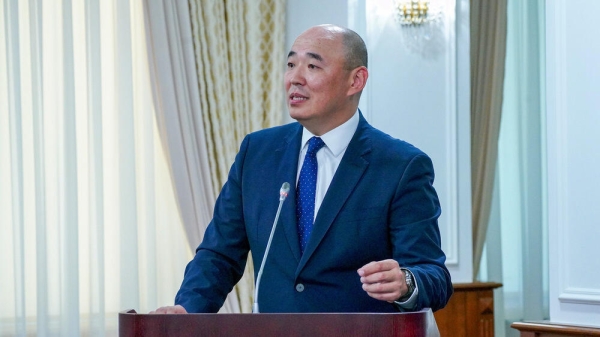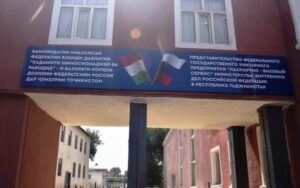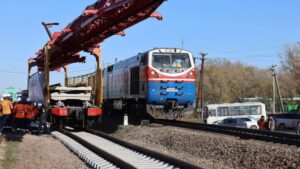
The Minister of Industry and Construction of the Republic of Kazakhstan Kanat Sharlapayev reported on full utilisation of domestic enterprises of the manufacturing industry at the Government session, primeminister.kz reports.
According to the results of the first half of 2024 in the manufacturing industry there is a growth of 5.1%. The main indicators – in ferrous and non-ferrous metallurgy, chemical, machine-building industries and furniture production.
According to the Minister of Industry, it is planned to ensure positive dynamics in the main sectors of the manufacturing industry by the end of the year. The key mechanism for achieving this goal is to support domestic production.
For this purpose, legislative changes have been adopted. Thus, the list of domestic goods, which have priority in public procurement, has been expanded. The mechanism for concluding offtake contracts has been elaborated.
In the construction of facilities at the expense of the state budget, control over the use of goods produced in Kazakhstan has been introduced.
In the procurement of subsoil users of solid minerals, a measure has been introduced to conclude contracts for the supply of domestic goods in the procurement of works and services. In the procurement of hydrocarbon raw materials and uranium subsoil users, requirements for the purchase of domestic goods have been established.
In the procurement of natural monopolies, a priority purchase of domestic goods has been established by reducing the bid price by 10%.
Changes were also made to the procurement rules of the Samruk-Kazyna Fund. The terms of long-term contracts and off-take contracts have been improved.
It should be noted that one of the positive results of the ongoing work is the growth of production in the manufacturing industry by 4% and a decrease in imports by 7%. Decrease in the volume of imported products is observed in the industries of mechanical engineering, metal products, paper products,” Kanat Sharlapayev noted.
To date, the amount of concluded contracts under the priority right has increased 1.4 times and amounted to 106 billion tenge. Effective growth is observed in procurement of chemical products, machine building and light industry.
The most effective for small and medium-sized enterprises is the measure of priority right to participate in procurement.
The Minister named vivid examples reflecting the positive dynamics of production in the regions of the country:
- Raduga LLP in the city of Petropavlovsk. According to the results of the first 7 months of 2024, it produced products worth 1 billion tenge due to participation in public procurement for the supply of paper products. Production utilisation increased to 100%.
- Lacra LLP in Pavlodar. Production load increased by 27% due to participation in public procurement for the supply of paint and varnish products.
- Metal Former LLP in Astana. Production started in April this year. The project “Comfortable School” allowed to load production at 100%. At the end of July, 303 thousand square metres of products worth 3.6 billion tenge were produced.
The second direction of the industrial department’s work is the conclusion of long-term agreements and off-take contracts between large customers and local manufacturers.
Thus, this year, major entities like Samruk-Kazyna and subsoil users concluded 382 long-term agreements and ofteik-contracts for 635 billion tenge. These indicators are a record for recent years,” the Minister said.
Active work is also underway to provide long-term orders for Kazakh enterprises and sales of products for major subsoil users of the mining complex, such as ERG, KazMinerals, Kazzinc, Kazakhmys, Qarmet, “AK Altynalmas”.
Enterprises of the mining and metallurgical complex concluded 139 long-term contracts with domestic producers for a total amount of 122 billion tenge. Compared to last year, their number increased by 4.2 times, and in monetary terms by 3.1 times. Among the goods are transformers, reducers, stop valves, mine equipment and pumping units, which were not produced earlier,” the head of the Ministry of Railways said.
In addition to the existing domestic commodity producers, 180 projects are planned to be commissioned this year with the creation of about 15.2 thousand permanent jobs.
Since the beginning of the year, 43 projects worth 158 billion tenge have been put into operation and about 2 thousand jobs have been created. Among them are KazAzot’s ammonium sulphate production in Mangystau region, Orda Glass energy-saving glass in Kyzylorda region, and Caspi Oil Capital’s oil and gas equipment in West Kazakhstan region.
The main goal of these projects is import substitution. By the end of the year it is planned to launch the production of ceramic tiles Wan Sheng Ceramic in Shymkent, components for trucks KamLitKZ and springs for railway cars Pruzhina in Kostanay region,” the speaker emphasised during the report.
He also reported on the active work on the creation of a unified register of domestic manufacturers.
The Register will include complete information on Kazakhstani commodity producers, including goods produced, types of activities, number of employees and production volume. Subjects included in the Register will have access to state incentives, procurement platforms, both public and quasi-public sector and subsoil users’ procurement. At the same time, the main condition for manufacturers will be to increase the localisation of production. By the end of the year it is planned to finalise the work on launching the register,” Minister Sharlapayev emphasised.
For further utilisation of domestic enterprises the following amendments to the legislation are at the stage of elaboration:
- for large customers the establishment of obligations to approve in-country value development programmes and to conclude long-term agreements and offtake contracts;
- establishment of a commission in the regions to monitor the use of domestic construction materials and equipment in the construction of facilities at the expense of the state budget;
- establishing obligations to purchase materials and equipment from the TNA in the construction of new production facilities.




